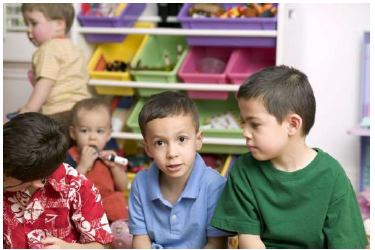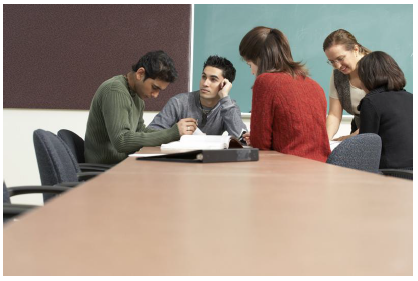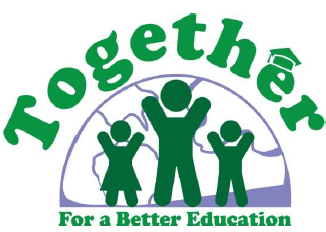Introduction
A key factor associated with academic success and dropout prevention is parent involvement. In order to help parents and students succeed in school, Cooperative Extension offers the Together for a Better Education program. The program brings together partners from high schools, local colleges, families of 9-12th grade students, college-age mentors, local nonprofits and UNCE staff. The program consists of six sessions held in English and Spanish in various locations across Las Vegas. This fact sheet provides an overview of Session 2: School Communication.
Contacting School Personnel
Part of being involved in your child’s education means communicating with school personnel. You may want to inform the teacher about a situation regarding your child, make suggestions regarding your child’s education, have a concern regarding a policy or simply stay informed about your son or daughter’s progress. The first step in communicating with school personnel is understanding how to contact the right person.
Who do I call first?
Start with the person closest to your child, generally a teacher or a guidance counselor. You should always feel free to contact any of the following: Principals, Assistant Principals, Deans, Counselors, English Language Learner (ELL) Specialists and Teachers.
To assist parents in deciding whom to contact, the Clark County School District developed a Communication Guide (CCSD). The following can help you decide who to contact. If the concern is a:
- Classroom Issue – Contact the teacher and allow 24 hours for a return call.
- School Issue – Contact the administrator responsible for the area of concern (may be a dean of students or assistant principal) and allow 24 hours for a return call.
- Region Issue – Contact the region office responsible for your area of concern.
- District Issue – Contact the Office of the Deputy Superintendent at 799-5475
How do I contact school personnel?
You may contact school personnel via email, mail, telephone or in person. Make multiple attempts; teachers and school administrators are extremely busy. Be patient, but persistent.

Successful Parent/Teacher Conference or Meeting
The following are important tips to consider when planning to attend a parent/teacher conference or meeting with school personnel:
- Bring a written list of questions.
- Share information about your child.
- Mention any topics of concern.
- Speak with your child before the conference and ask them what they think their teacher wants to talk about.
- Arrive on time or early.
- Avoid taking younger children.
- Bring something to write on.
- Speak tactfully and clearly.
- Take notes.
- If possible, find out about services and programs offered, discipline policies, extracurricular activities and other relevant topics before the conference. If unable to learn about these issues ahead of time, ask about them during the conference.
- After the conference, talk to your child about what was discussed during the conference.
- Be positive.
Things you may find out from the teacher are: your child’s behavior and disposition and attitude; their academic progress; their test results; and their relationship with others.

What is communication?
Communication is the act of exchanging information, ideas, messages and emotions. It is the process of giving and receiving, listening and being heard.
Obstacles to effective communication
- Environment
- Lack of time
- Negative attitudes
- Cultural differences
- Language barriers
- Different communication styles
Although some obstacles may be out of your control, you can minimize some of them by following the tips listed above. Also:
- Talk with respect and be clear.
- Listen to the person’s answers.
- Think in advance how to convey your concerns.
- If the issue is not resolved, speak with someone else in the chain of command.
- If needed, call ahead and request a translator or bring an adult family member or friend to assist with translation.

School Personnel
“Who are the key personnel at your child’s school?” There are many people who work in the schools, some may include: front office staff, librarian, school nurse, school psychologist, literacy specialist, teacher assistant, cafeteria staff, janitorial staff, special education coordinator and social worker. However, these are the school’s key positions:
- Principal – Instructional leader of the school. Serves as the chief administrator of a school, developing and implementing policies, programs, curriculum, activities and budgets.
- Assistant Principal(s) – Serves as a member of the administrative team to develop and implement the total school program. Assists the principal and usually is responsible for curriculum and facilities.
- Dean(s) – Serves as a member of the administrative team to develop and implement the total school program. Assists the principal and is usually responsible for discipline and transportation.
- Guidance Counselor(s) – Helps all students develop skills in areas of personal-social growth, educational planning and career and vocational planning.
- Teacher(s) – Responsible for your child’s daily instruction. If you are concerned about something related to your child’s education, schedule a meeting with the teacher. (Source: North Carolina Cooperative Extension, 2011)
School personnel are available to help. Although it may seem intimidating at first, don’t be afraid to talk to communicate with school personnel; it will be beneficial for your child and will become easier and easier.
Source: North Carolina Cooperative Extension. Together for a Better Education Facilitator Manual.
To learn more about this topic and “Together for a Better Education” contact: Nora Luna at (702) 940-5420 or email.

Funded by the U.S. Department of Education and brought to you by the Nevada System of Higher Education (NSHE)


